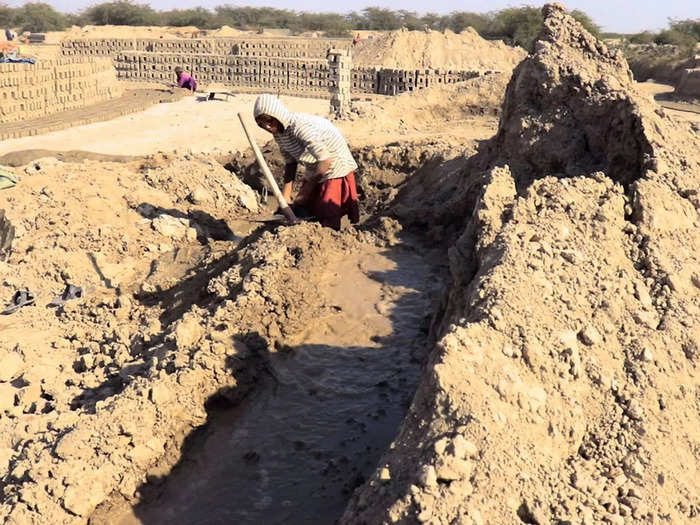- Home
- international
- news
- In Pakistan, millions are trapped in modern-day slavery at brick kilns, working dangerous jobs to pay off snowballing debts
In Pakistan, millions are trapped in modern-day slavery at brick kilns, working dangerous jobs to pay off snowballing debts
Isaiah Reynolds,Olivia Nemec,Havovi Cooper,Kashif Khan

- In Pakistan, families are forced to make over 1,500 bricks a day to repay loans from the kiln owners.
- However, they are not told how much they owe, how long they must work, or how much interest is being attached to their loans.
In the Thar desert of Pakistan, generations of families are trapped in debt bondage, forced to work for years in brick kilns to repay loans from the kiln owners.
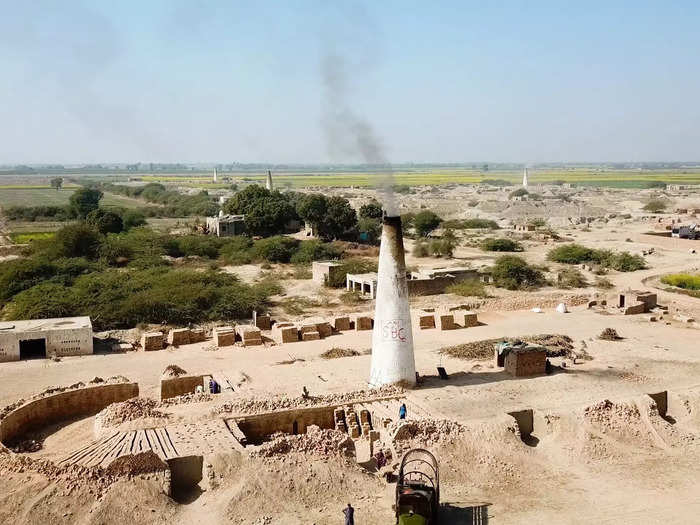
Source: Insider
Facing brutal working conditions, including temperatures that can reach upward of 120 degrees Fahrenheit, around 150 families work every day to hand over their quota of 1,500 bricks to the kiln owners.
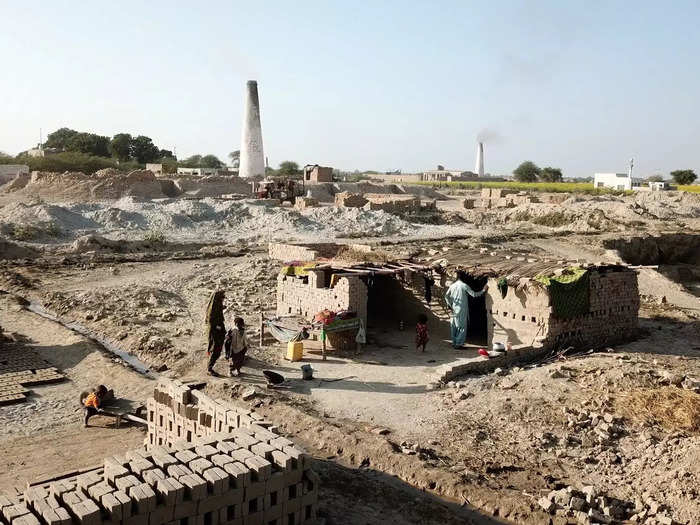
Many of these families are stuck in debt bondage and work to repay their loans. They make $1.50 a day and are told another $1.50 goes toward their debt. However, as there are no set contracts or conditions to these debt agreements, the families often don't know how much money they owe, how much interest is being added onto their debts, or how much longer they will have to continue to work before the debts are repaid.
Source: Insider
Earning low wages, they have to keep borrowing money from the wealthy owners just to survive.
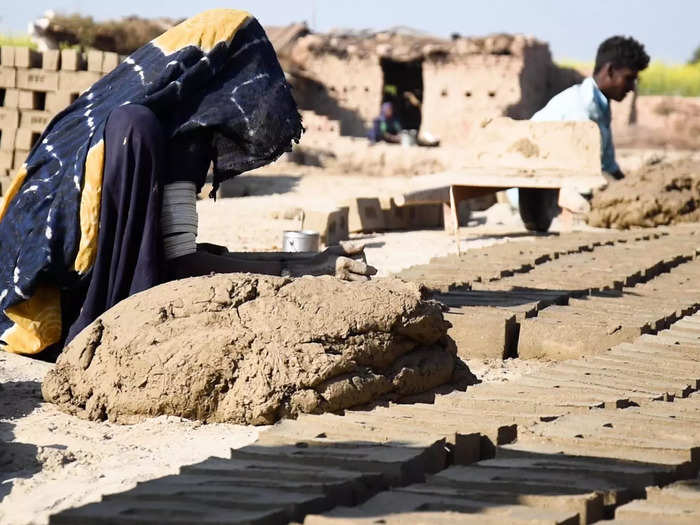
Source: Insider
Poonjo Meghwar, a brick kiln worker, believes he still owes about $560 dollars from a loan he borrowed years ago to pay hospital bills.
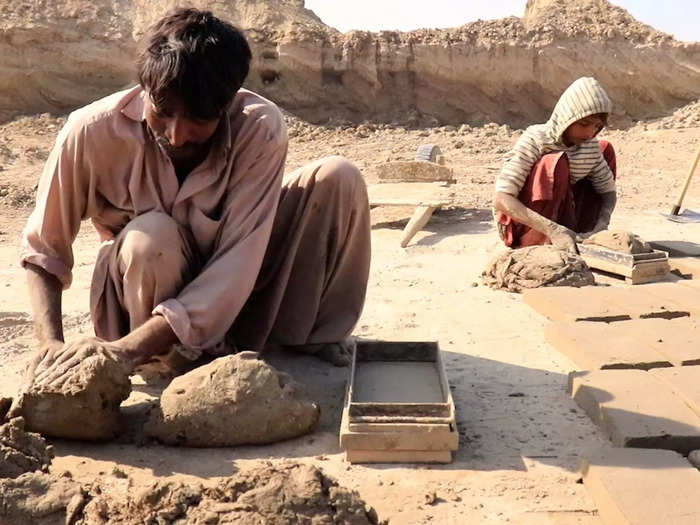
His wife, 70-year-old mother, and 12-year-old son, Dileep, also all work at the kiln to pay off the same debt.
The kiln owner could bring in that same amount in one week just by selling the very bricks the Meghwar family produces.
Source: Insider
The process of making bricks is laborious and physically exhausting. First, one must accumulate enough dirt to mix with water.
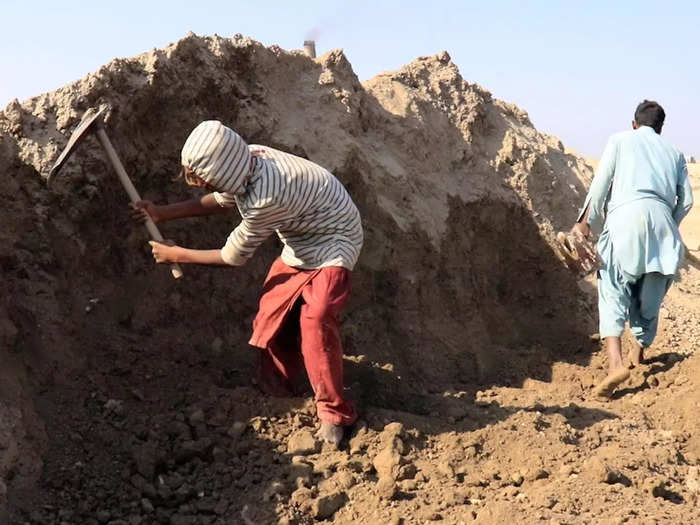
Source: Insider
Donkeys are used to transport nearly 5,000 bricks from the plots to the fire kiln every day.
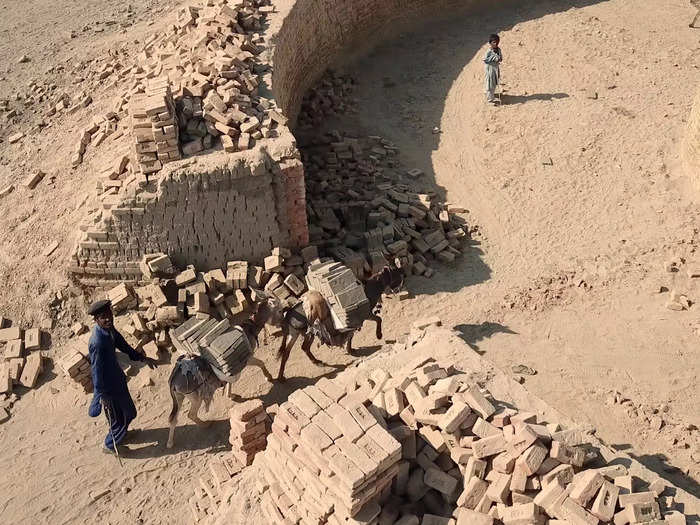
Source: Insider
Workers stack the bricks in underground ovens where they bake for days, usually over a month. The kilns are estimated to reach nearly 2,000 degrees Fahrenheit.
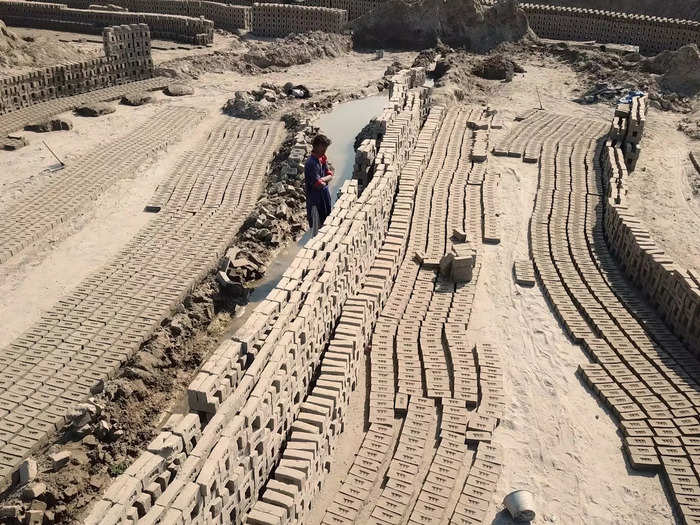
Source: Al Jazeera, Insider
The kilns are covered with sand and gaps are filled with wood. Kiln workers risk their lives with the threat of cave-ins .
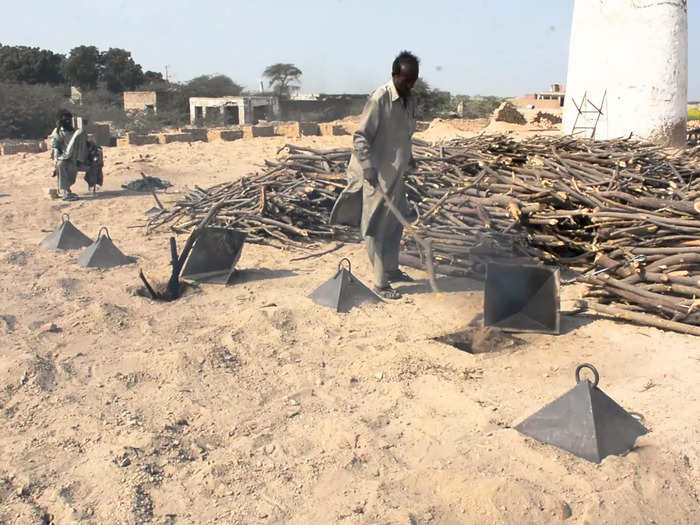
In July 2022, three workers died when they dropped into the blazing kiln.
Source: Insider
Once the bricks are fully prepared, construction sites use them for everything from building houses to supporting bridges and canals.
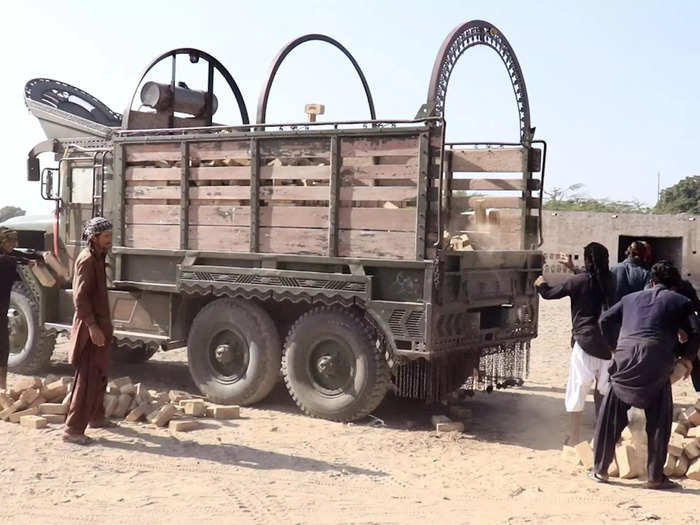
There are nearly 20,000 of these brick kilns in Pakistan and over 100,000 across South Asia. In some cities, they account for 91% of pollution, according to the World Bank. As of November 2022, Pakistan's Environmental Protection Agency closed roughly 70 kilns because of overpopulation.
Source: Insider
In addition to the extreme heat, breathing in dust, and exposure to carbon monoxide and sulfur can result in death, especially among children.
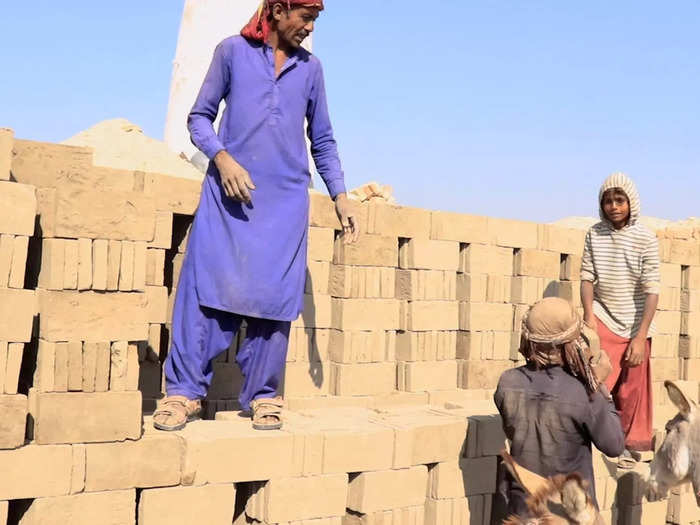
Source: Insider
Child labor, which is illegal in Pakistan, also runs rampant at brick kilns.
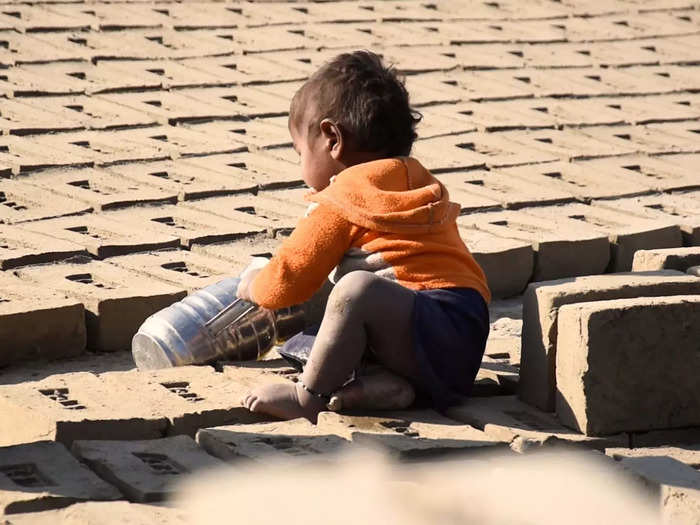
What's happening at the brick kilns falls under the legal definition of debt bondage, which was outlawed in Pakistan's constitution in 1992.
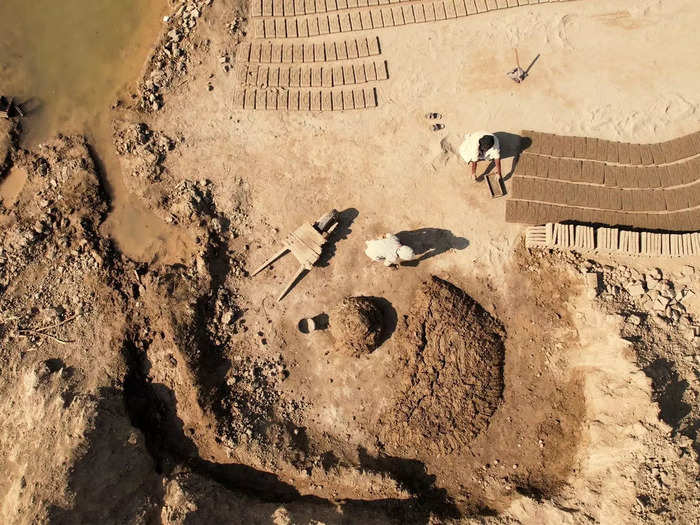
Unfortunately, this kind of modern day slavery is not unique. The Global Slavery Index estimates nearly 25 million people are held in debt bondage just in Asia and the Pacific regions alone. Farming and brick production are the most common industries for debt bondage.
Source: Insider
Despite media evidence and reports, the Department of Labor in the Sindh province claims debt bondage can't be proven because there are no official records that the families or children work there.
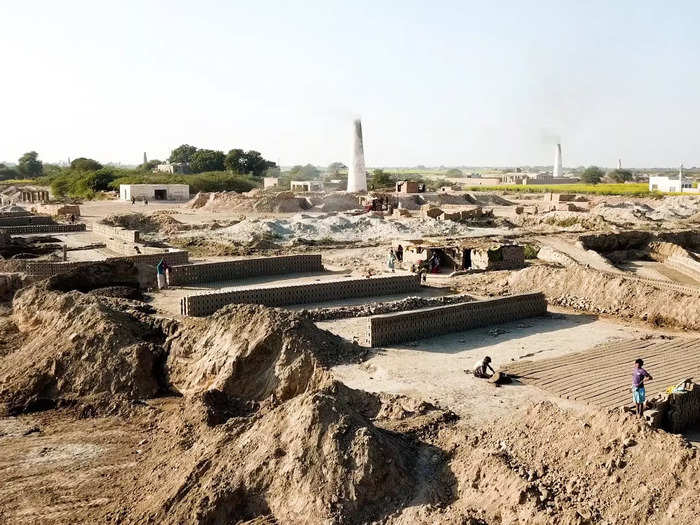
But experts say that many kiln owners have government ties that help them evade any punishment.
Source: Insider
Zahid Thebo works with Society for the Protection of the Rights of the Child, or SPARC, to monitor child labor at brick kilns. The NGO works to bring the cases for families stuck in bondage to court and has successfully helped free over 17,000 workers.
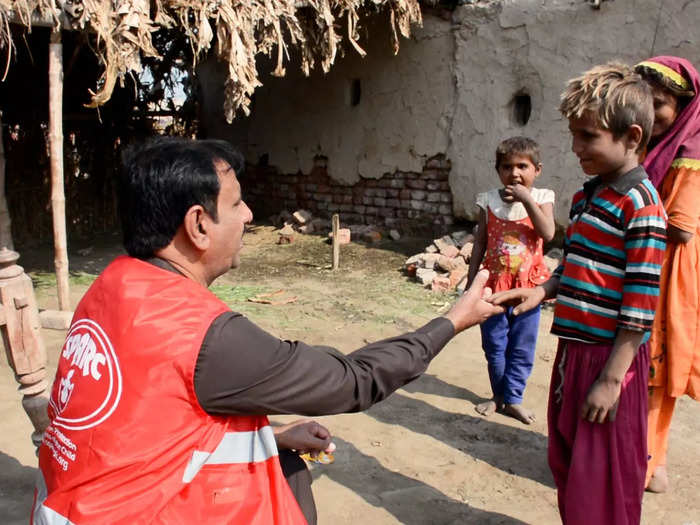
"When we get people released, seeing the smiles and happiness on their faces, when we see the bright faces of young children — we can't get that mental and emotional satisfaction anywhere else," Zahid said.
Source: Insider
Once released, the families have the option to move to a camp called Azad Nagar, which means "Free City." There, the families are able to earn wages by working at a kiln, but they do not owe anyone any money.
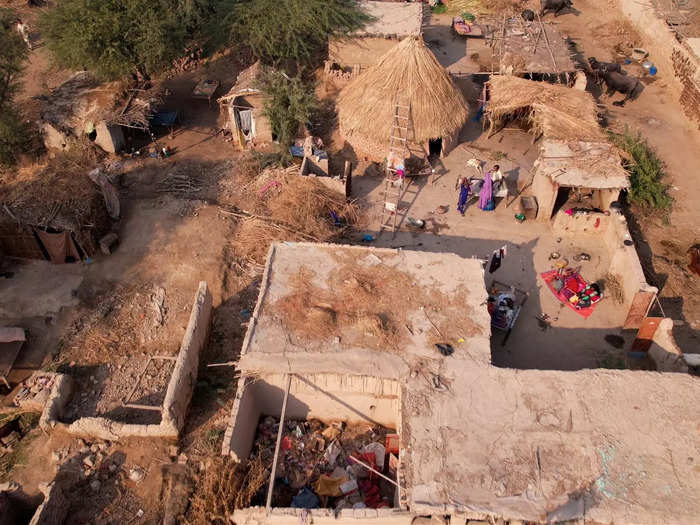
Source: Insider
Many of the Azad Nagar residents say they feel lucky to have escaped the cycle of debt bondage. However, the camp has no running water or operating schools for children. The organization has appealed to the government for funding.
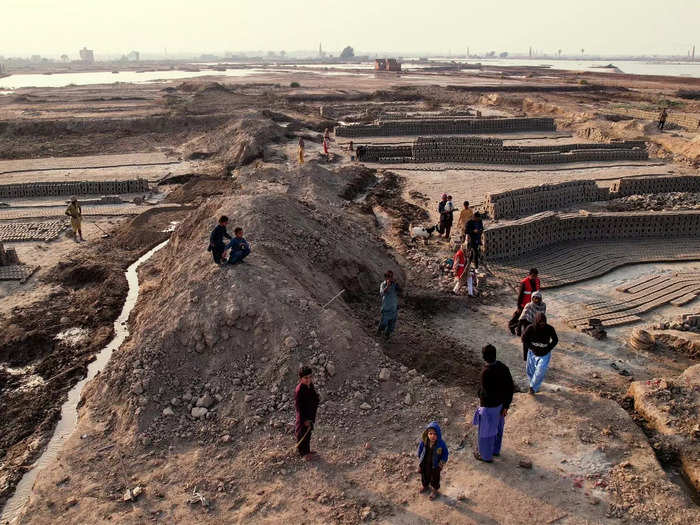
Source: Insider
"There is so much oppression. They wouldn't pay wages. They would lock us up in the kiln owner's office and beat us up," recalled Pannu Faqeer, an Azad Nagar resident who has been freed from debt bondage for over 20 years.
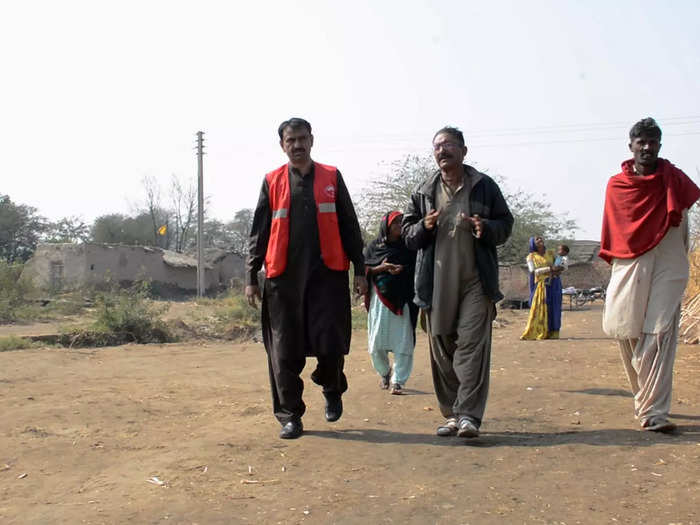
Source: Insider
Now Pannu works with SPARC by traveling with other workers if they receive a court date. He still faces threats from kiln owners and was attacked during a workers' rights protest in 2013.
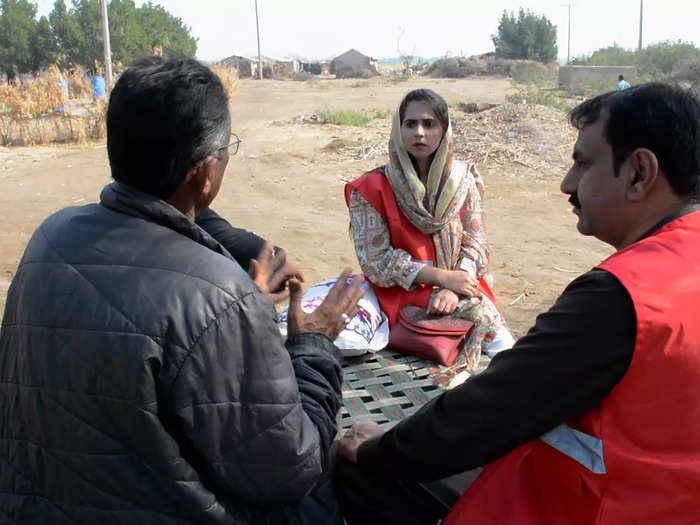
Source: Insider
"We are free here because we are in this colony," Pannu said "If we were at the kiln, then we would have faced restrictions."
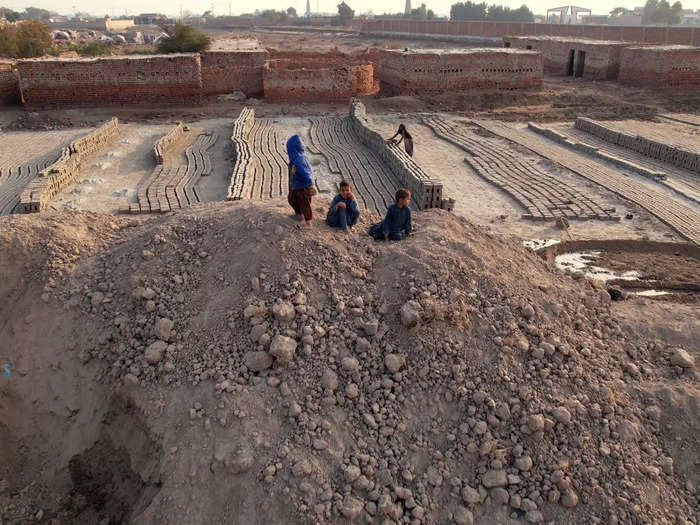
Source: Insider
Popular Right Now
Popular Keywords
Advertisement
